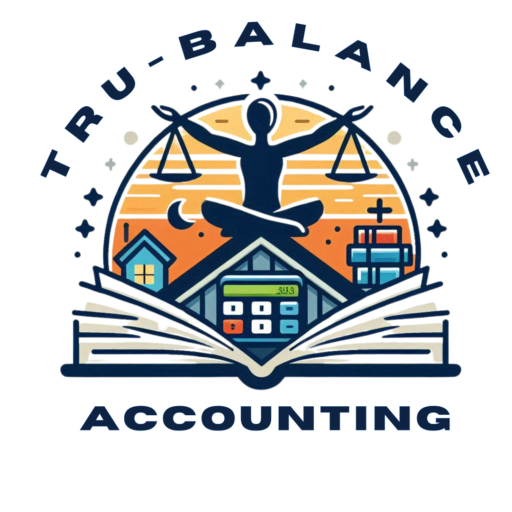What is Bookkeeping? Why is it Important for a Business?
Bookkeeping is critical to running a successful business, yet many entrepreneurs often overlook or underestimate it. In simplest terms, bookkeeping is the process of recording and organizing a business's financial transactions. This includes recording sales, deposits, purchases, receipts, and payments made by the industry. In essence, bookkeeping is any business's financial management foundation, providing valuable insights into the company's financial health.
The primary role of bookkeeping in financial management is to ensure that all financial transactions are accurately recorded and organized. This allows business owners and managers to track income and expenses, monitor cash flow, prepare financial statements, and make informed decisions about the future of the business. Without proper bookkeeping, a business may struggle to manage its finances effectively, leading to financial instability and potential failure.
Why is Bookkeeping Important?
Proper bookkeeping ensures that companies can accurately report their income and expenses to the tax authorities, avoiding penalties and legal issues. Additionally, well-maintained financial records provide valuable insights into the business's economic performance, helping owners identify areas of strength and weakness. Now that you know what bookkeeping is, we will discuss why bookkeeping is essential for any business beyond the legal requirements.
How can Bookkeeping help my business?
Here are a few reasons why Bookkeeping is crucial for your business.
1. Financial Organization: Proper bookkeeping helps you stay organized by systematically tracking all your financial transactions. This makes managing cash flow, paying bills, and handling expenses easier.
2. Tax Preparation: Accurate books simplify preparing and filing taxes. With well-maintained records, you can ensure that all your expenses are properly documented and deductible, helping to maximize your tax benefits while staying compliant with tax laws.
3. Informed Decision-Making: Having up-to-date financial records provides valuable insights into your business's economic health. This enables you to make
informed budgeting, investments, and future planning decisions. You can identify trends, like which expenses are increasing and where you profit most.
4. Legal Compliance: Bookkeeping helps businesses comply with financial reporting requirements mandated by the government and other regulatory bodies. Staying compliant avoids potential legal issues and fines for non-compliance.
5. Financial Control: Accurate bookkeeping allows you to gain better control over your finances. This lets you track all revenues and expenses meticulously,
preventing mismanagement or fraud. You'll have a clear picture of where your money is going and how much you're profiting.
6. Profitability Analysis: Bookkeeping helps you track income and expenses at a deeper level, allowing you to assess which aspects of your business are most
profitable. You can use this information to focus on strategies to maximize your business’s profitability.
Do It Yourself Bookkeeping

After hiring a professional Bookkeeper

Understanding Cash Flow Monitoring Through Proper Bookkeeping.
Keeping a close eye on cash flow is crucial for any business. Here's how proper bookkeeping helps you do that:
Tracking Income and Expenses
When you keep accurate records of all the money coming in and going out, it creates a clear picture of your financial situation. You'll know exactly where your money is coming from (like sales or services) and where it's being spent (like rent, utilities, or supplies).
Making Informed Decisions
With this information at your fingertips, you can make smart choices about how to budget and spend your money. You'll be able to see if you're meeting your financial goals and if there are areas where you can cut costs or save. This helps you avoid overspending and ensures you have enough money for essential expenses.
Planning for the Future
Good bookkeeping also helps businesses plan for future growth. By analyzing your cash flow, you can identify trends and make projections. This means you can set aside funds for upcoming projects or investments, ensuring you have the resources to expand and take advantage of new opportunities.
Ensuring Financial Stability
Regularly monitoring your cash flow helps you stay financially stable. You'll be able to predict and prepare for periods when expenses might exceed income, so you’re not caught off guard. This level of preparedness helps you avoid financial shortfalls and maintain a healthy cash reserve.
Summary
In essence, proper bookkeeping and cash flow monitoring offer a comprehensive view of your finances, allowing you to manage your business effectively, maintain financial stability, and plan for future growth.
Accounting Methods
Single Entry Accounting
Businesses can use various bookkeeping methods, depending on their size and complexity. One less standard and limited method is single-entry bookkeeping, where transactions are recorded only once as either income or expenses. This method is usually used by small businesses with simple finances or someone just starting their business, as it is easy to understand and implement. However, single-entry bookkeeping may not provide detailed insights into a business's financial health, making it less suitable for larger organizations.
Double Entry Accounting
Double-entry bookkeeping is a more comprehensive method that records each transaction twice – once as a debit and once as a credit. This method ensures that the accounting equation (assets = liabilities + equity) is always balanced, providing a detailed and accurate view of a business's financial position. Double-entry bookkeeping is widely used by medium to large companies, as it allows for more in-depth analysis of economic data and provides a solid foundation for financial reporting.
Accounting Software
Another method is computerized bookkeeping, which uses accounting software to record and organize financial transactions. This method is increasingly popular due to its efficiency and accuracy. With computerized bookkeeping, businesses can automate repetitive tasks, track financial data in real time, and generate detailed reports with just a few clicks. This saves time and effort, reduces the risk of errors, and enables businesses to make data-driven decisions. Here at Tru-Balance Accounting, we use QuickBooks. QuickBooks is widely used by most companies regardless of the size and offers business owners many benefits.
Outsourcing Bookkeeping
Businesses can outsource their bookkeeping to professional or accounting firms. Outsourcing bookkeeping can be a cost-effective solution for companies that lack the expertise or resources to manage their financial records internally. Professional bookkeepers can ensure that all financial transactions are accurately recorded and comply with accounting standards, allowing businesses to focus on their core operations and strategic goals.
Outsourcing can save you money in the long run. Most business owners spend 20 hours a month doing bookkeeping duties. What could you do with 20 hours back in your schedule? Could you spend more time gaining more customers and increasing revenue? Growing your business and serving your clients and customers takes hours upon hours a month, and just getting back those 20 hours in your monthly schedule can reap huge rewards for your business's profitability.
Real Life Example
To illustrate the importance of bookkeeping in business, let's consider a real-world scenario. Imagine a small retail company that sells handmade jewelry online. The business owner, Sarah, is passionate about her craft but struggles to keep track of her finances. Without proper bookkeeping, Sarah often finds it challenging to know how much money she is making, how much she is spending, and whether her business is profitable.
After some time, Sarah hires a professional bookkeeper to help her manage her financial records. The bookkeeper sets up a double-entry bookkeeping system using accounting software like QuickBooks, recording all of Sarah's sales, expenses, and payments. With accurate and up-to-date financial records, Sarah can see that her business is more profitable than she thought, identifying opportunities to increase sales and reduce costs.
Additionally, the bookkeeper helps Sarah prepare for tax season, ensuring that her business complies with tax regulations and maximizes her tax deductions. With the insights provided by proper bookkeeping, Sarah can make informed decisions about her business, set realistic financial goals, and plan for future growth. Overall, bookkeeping has enabled Sarah to take control of her finances and put her business on a path to success.

Key Take Aways
Bookkeeping is crucial to running a successful business, whether just starting one or running one for years. It provides valuable insights into a company's financial health and facilitates informed decision-making. By accurately recording and organizing financial transactions, companies can monitor cash flow, prepare for tax season, and track their economic performance. Regardless of the method chosen, proper bookkeeping is essential for companies of all sizes to thrive and grow. By investing in bookkeeping, companies can gain financial clarity, minimize financial risks, and achieve long-term success for their business.
So, if you did not start a business as an expert bookkeeper, we did! Let us handle the heavy lifting of your financial success while you improve your bottom line!

